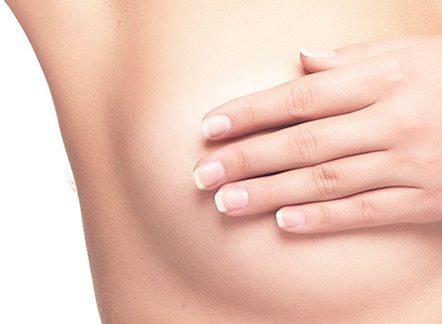STEP-BY-STEP PLAN

Preliminary visit
If you request an appointment you can nearly always count on being received by Dr. Karim within 2 weeks. We hold a preliminary visit in which we assess your requirements
Operation
The procedure can usually be performed within two weeks of the admission interview.
Rest
You should take things easy for at least two weeks after the procedure. Recovery from an operation is important, give yourself plenty of time and rest to recover!
Control
You will return two weeks after the procedure for us to check your progress and, if necessary, remove the stitches.
Final checkup
There is a final checkup three months after the operation. During the checkup, Dr. Karim ascertains whether everything has gone well and your satisfaction with the final result.
Before the operation

Travel
Since you cannot drive home after the operation (no car or bicycle), it is important for you to make travel arrangements.
Drugs
Do you use blood-thinning drugs? Please let us know if you do. Ask the doctor from whom you get the prescription and find out if you can temporarily stop treatment. Your doctor will tell you how many days before the operation you should or can stop taking the blood-thinning drug. Dr. Karim wants to ensure this is possible in order to avoid unnecessary risks.
Disease
Fever or flu the day before the operation? Contact Dr. Karim to decide if the operation can be performed or should be postponed.
Cosmetics and personal care products
We understand that you always want to look your best, but on the day of surgery you cannot use skin care products or makeup.
Alcohol consumption
You may feel nervous about the operation, but you can’t drink alcohol the day before (or on the day itself, of course!)! Drinking alcohol increases the chances of subsequent bleeding of the wound.
Consent to the operation and description of the procedure
Generally, before each operation, you will sign an agreement and consent form.
During the operation

Skin incision
Removal of previously defined excess breast tissue
Arrangement of the remaining breast tissue to obtain the desired shape and displacement of the nipple and areola
Stitches
Operating time: about 2 hours
After the operation

Dressing
After the procedure, you will have two small patches placed at the bottom of your breasts and be taken to the recovery room for recovery.
Drainage
You can go home the same day. When you have drains, you will return a few days later to have the tape and drains removed.
Sports bra
Wear a sports bra for six weeks after the procedure.
Showering
When the drains are removed, the wounds can be wet in the shower.
Pain
For the first few days you will feel pain in the breasts surrounding area. This lasts for a maximum of two weeks. During these two weeks you will need to take it easy to recover from the operation. Give yourself plenty of time and rest to recover!
Drugs
If you wish, you can take two 500 mg paracetamol tablets four times a day.
Soluble stitches
After a breast reduction operation, the wound is closed with soluble stitches.
Physical activity
Avoid physical exertion, such as bending over and lifting heavy objects, for at least two weeks.
Scar cream
Six weeks after the procedure, you can begin to apply scar cream.
Risks

Safe operation
A breast reduction is a safe procedure, especially in expert hands.
General risks of any operation
Subsequent bleeding, infection, fluid retention, thromboembolism, slow healing, and unsightly scarring are all risks in any surgery.
Specific risks
After a breast reduction operation, a temporary change in nipple sensation may occur.
Opening of the wound
The wound may open if the patches or stitches are removed prematurely. Keep patches and stitches in place until 2 weeks after the procedure.
Results

Results
A breast lift provides a long-lasting result, after approximately one year it can be considered to reach its permanent appearance.
Symmetry
As with any bilateral surgery, perfect symmetry cannot be guaranteed. Fortunately nothing in nature is perfectly symmetrical.
Passage of time
Over time, the breasts may change. Due to pregnancy, fluctuations in your weight, or changes in hormone regulation.


